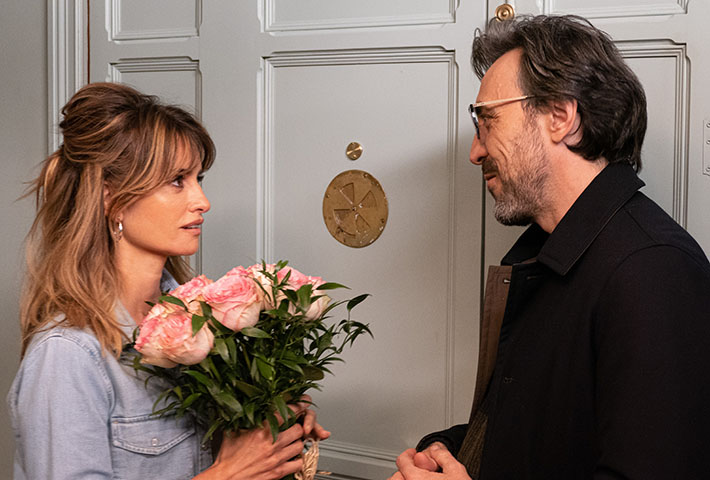Original Title: Madres paralelas | Written and Directed by Pedro Almodóvar | 123 min | ▲▲▲▲△ | Crave
I was thinking of something film critic Helen O’Hara said on the Empire Magazine Podcast this week, when musing on this year’s Academy Awards: All of the nominees for Best Actress in a Leading Role went to performers in films not nominated for Best Picture. She suggested this is an indication that women’s stories aren’t considered as important as men’s to the Academy, and I would tend to agree with her. The Lost Daughter and Spencer are rich, interesting films, and could have easily filled the slots instead of a couple of the other films in contention for Best Picture. (You can read more of my thoughts on the Oscars here.)
Now we get the return of one of the most beloved figures in world cinema, Pedro Almodóvar, whose cinematic mollete y manteca for years has been melodramas with women in their centres. That’s certainly the case here — an expertly crafted soap with a sprawling cast, solid performances, swelling strings in the score, and multiple subplots, that eventually takes us someplace different entirely.
And, yes, it could easily have been a Best Picture nominee.
Janis (Penélope Cruz) is a photographer in Madrid who, after a photo shoot with Arturo (Israel Elejalde), a forensic archeologist, asks him to help investigate a mass grave in the small town where she was brought up. She believes it’s where her great-grandfather and other men from the town were killed and buried at the start of the Spanish Civil War. She and the married Arturo also sustain a year-long affair until she gets pregnant. She breaks it off with him because he doesn’t want her to have the child. She prefers to make her own decisions.
In the maternity ward we meet Ana (Milena Smit), Janis’ roomie, a teenager who is also bringing an unplanned pregnancy to term. The two women have their daughters on the same day.
The film follows both single mothers as they make the necessary changes in their lives to accommodate raising a child, the challenges and stresses involved. But when Arturo arrives and meets his daughter, and feels like he doesn’t recognize her, Janis has the baby’s DNA tested and…
Well, I’m not going to say what happens next. The central pleasure of the film, at least its first few reels, is the deliberate decisions that Janis — who holds her cards close to her chest — makes with her and the baby’s interests in mind. We have to read her feelings on her face.
The film offers plenty of clues to where its going in the first act, but even though it’s more than an hour in before it confirms what I’d strongly believed to be true, I didn’t mind its gradual reveal because the performers are all wonderful. Cruz is especially fine, fully deserving her nomination, while the characters around her are almost as vivid; Ana, Ana’s self-involved but self-aware mother (Aitana Sánchez-Gijón), and Janis’ friend, Elena (Rossy de Palma, who will be familiar to longtime Almodóvar fans).
The film is full of interesting touches that bubble up under the drama, throwbacks to the old world. See how many times Janis writes down her phone number on a scrap of paper rather than typing it into a cellphone. See the importance of old photos in her life. See the evidence of the people who went before.
What Parallel Mothers ends up being is a compassionate ode to all mothers and their work, not just these two in the leads but the women who raised them, and the ones who came before — the ones who survived war and bore the pain of loss. It shows Almodóvar working in his comfort zone, but also revealing a welcome maturity and seriousness in his storytelling. Solid, all around.













